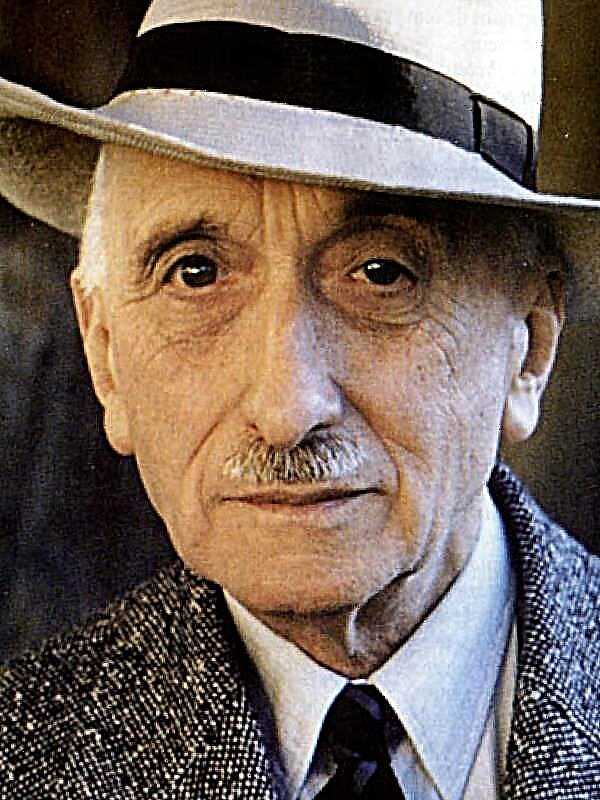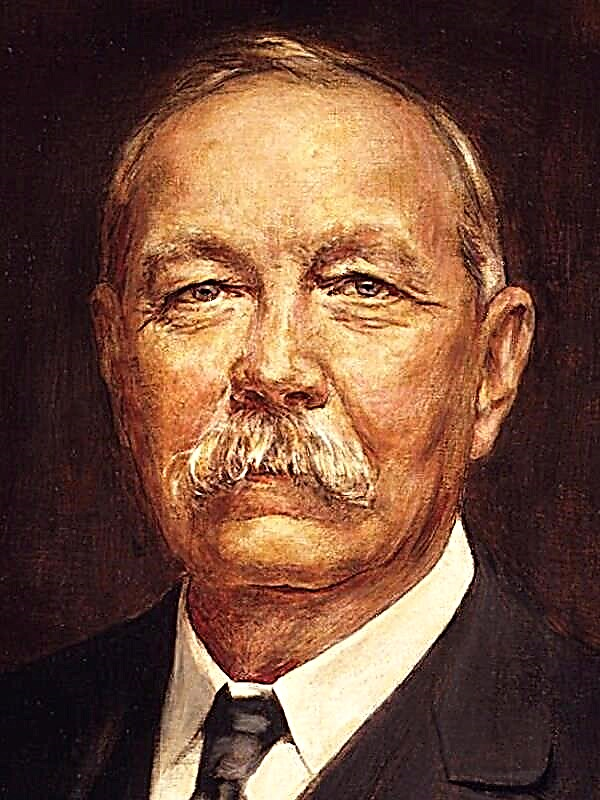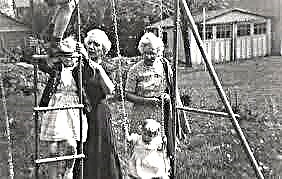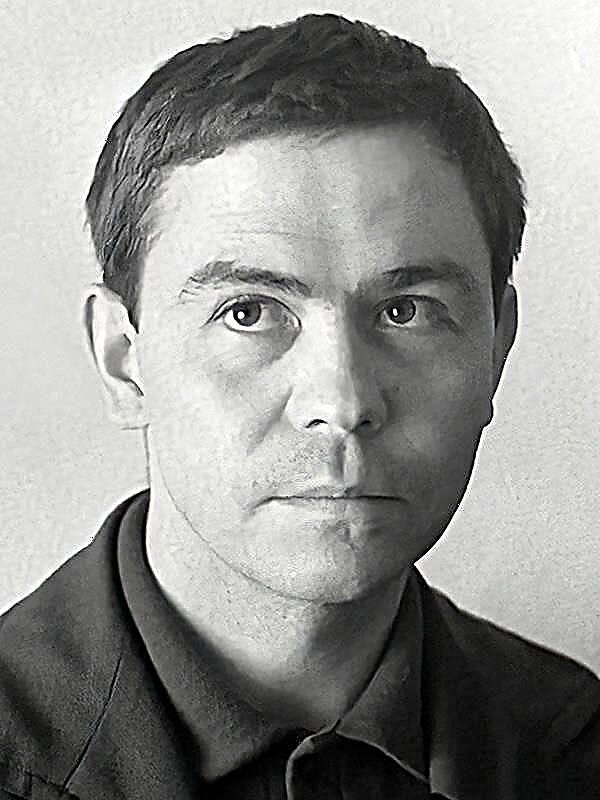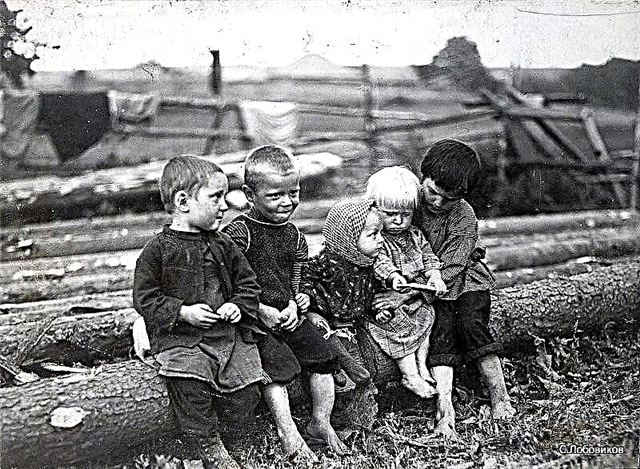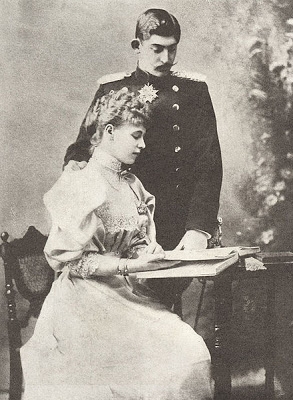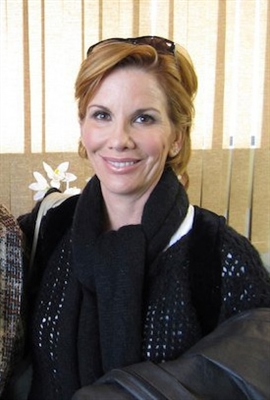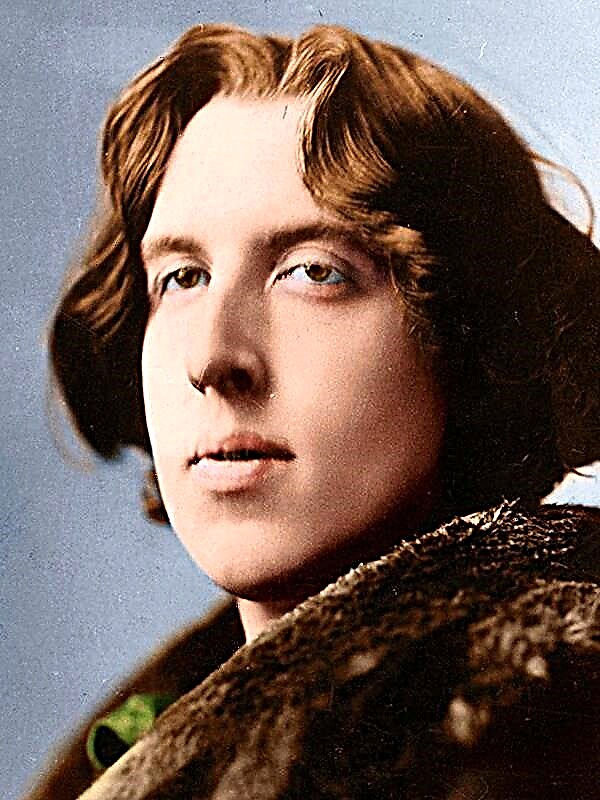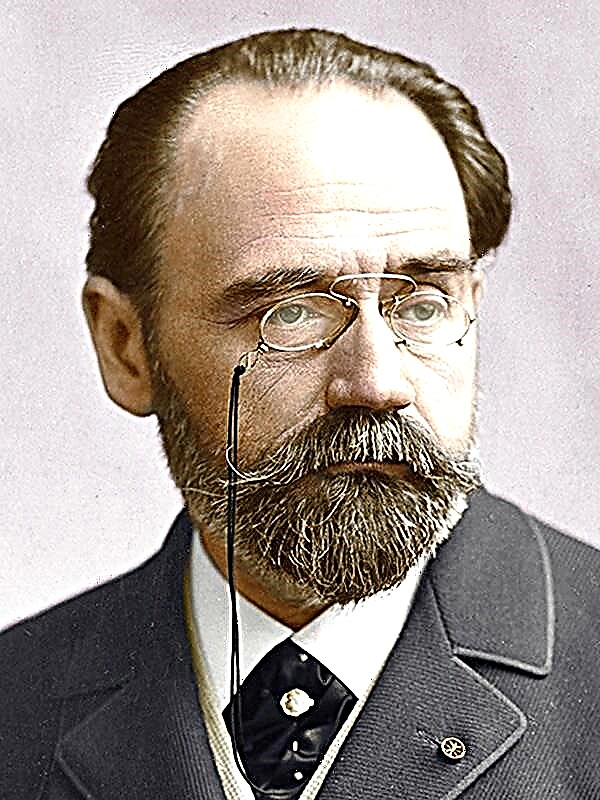At the beginning of the Tale, the author praises the Indian king Abner, extolling his wealth, strength, military prowess; Abner is stately in body, handsome in face, but, unfortunately, a pagan. Abner has no children (nothing has been reported about his wife), and this saddens him. But finally, a son is born to the king - Joasaph. Regarding the long-awaited event, Avenir is organizing a big feast, in which, in particular, fifty-five “chosen husbands” are going to gather - scientists “from the Chaldeans” “starwriters”, that is, astrologers. They predict that Joasaph will be a Christian and he was born not for the kingdom of Abner, but for another, better one. At the same time, the author compares the pagan “starwriter” with the biblical prophet Varlaam - the comparison is justified from the point of view of the pious author, because the prediction refers to the Christian future of Joasaph.
Hearing the prophecy of "star-takers", Abner saddens and decides to protect his son from a predicted fate. Therefore, Joasaph spends the beginning of his life away from the suffering and illnesses of the world - in a special palace that his father builds, surrounded by
beautiful and young servants. Abner punishes the servants to protect Joasaph, and most of all to fear the monks. Abner’s hatred of the monks whom he mercilessly torments and puts to death is motivated not only by the pagan views of the king, but also by personal reasons: Abner’s best dignitary becomes a monk, Abner’s conversation with him is actually the first dialogue about faith with which the Tale abounds.
In addition to the dialogues, the Tale is full of parables and plot inclusions, approaching the parable genre. So, further in the "Tale" it is described how a certain old boyar finds, being with the king on a hunt, a man with a damaged leg and saves him, not counting on a reward. This man turns out to be skilled in conducting speeches (a "pleaser of the verb"), which comes in handy to the boyar in the future: the cunning Abner, upon instilling his environment, begins to experience the boyar, suspecting that he decided to take his place. A man found on a hunt teaches the boyar to put on a hair shirt and appear at Abner to show that he does not need earthly power
This convinces Abner of the innocence of his old servant, nevertheless he continues to persecute the monks and even burns two.
Joasaph achieves great success in learning, learns the wisdom of the "Ethiopian and Persian country", becomes beautiful and intelligent, is distinguished by spiritual meekness. Abner loves his son very much, and Joasaph answers him the same. But the imprisonment cannot last forever, and Joasaph asks his father for permission to walk outside the walls of the palace, where, soon after an oversight of servants, he sees two blind men, then two lepers, and then a decrepit old man. What he sees makes the prince think, which predetermines his conversion to Christianity. Soon the teacher Varlaam appeared in his life.
Even before the appearance of Barlaam, the author reports that those who manage to hide from the persecution of the pagan king do not do this in order to avoid suffering, but submit to Divine will.
Apparently, Varlaam also refers to such. Before meeting with Joasaph, Varlaam lives in the land of Senaris, he is wise, and the author can not say anything about his origin. Barlaam himself speaks of his age much later to Joasaph: he is seventy years old, but he believes that he is forty-five, because only this period he lived without sin and was not seduced by the beauties of the world
Once Varlaam receives a revelation from above, pointing to the king's son. Varlaam disguises himself in worldly clothes, gets on a boat and arrives in the Indian kingdom. There, posing as a merchant, he offers a certain gem to Joasaph's “feeder”. The "Feeder" is imbued with respect for Varlaam ("I see that you have lived and are filled with the mind") and allows him to go to the prince. Acquainted with Joasaph, Barlaam predicts to him that he “will be like a stone with radiance,” and his task, Barlaam, is to teach Joasaph. The whole "Tale" describes the process of teaching Joasaph the Christian faith. Barlaam sets out in detail the foundations of Christianity for his student, prepares Joasaph for the feat of monasticism and desertification, not without reason he tells him (not at once) about Anthony the Great, the founder of monasticism.
A kind of stages marking the rise of Joasaph under the leadership of Barlaam to the heights of faith can serve as parables, told from time to time by Barlaam.
Joashaph learns nine parables from Barlaam, of which one of the Gospels. The gospel parable of the Sower, with which Varlaam begins, he, on the one hand, prepares Joasaph for the adoption of Christianity, on the other hand, shows that Joasaph is ready for this step (like a grain that has fallen into fertile soil).
Following Barlaam tells the parable of the death tube and four arks: a certain glorious king rode once on a golden chariot surrounded by guards. He met two people, dressed in torn clothes and exhausted by fasting. Seeing them, the king got off the chariot, bowed and embraced them with love. The suite met with indignation the strange act of the king, the nobles persuaded the tsar’s brother to tell the tzar so that he would not neglect tsarist greatness anymore. The king answered his brother with a task that he did not understand - when the evening came, the king sent to the door of the house where his brother lived a "death pipe", which in his kingdom announced the death sentence. The brother, having spent a sleepless night, in the morning, in mourning robes, appeared with his family to the king. The king said to him: “If you were afraid when you heard the sound of the trumpet, although there is no fault of yours, how could you rebuke me, greeting the“ heralds of my God ”? After this, the king ordered to make four arks of wood, gilding two of them, and coat the remaining two with tar and tar. Stained bones were placed in the gilded arks, and jewels, which were previously smeared with incense, were smeared with tar and tar, and smeared with tar and tar. The king proposed to the nobles the king two of these arks. Those chose gilded. Here the king convicted them, proving that the external image can be deceiving. “So the tsar was ashamed of his nobles and taught them not to be deceived by the visible, but to heed the rational” (translation by I. N. Lebedeva).
Further, in the teachings of Joasaph Barlaam includes parables about the nightingale, about the alien, about three friends, about the king for one year, about the king and a reasonable adviser. The parable of Varlaam “On the rich young man and the daughter of the poor” is interesting in that the story of love appears with her, albeit briefly: in the parable it is told how the father wooed his son a noble and rich beauty. The young man did not want to marry her, because he considered marriage “a nasty thing”, and left his father. In the house of a wretched old man, he met a girl who amazed him with his deep discussions about life, about spiritual wealth and about man’s attitude to God. The parable depicts the spiritual side of love: a young man "fell in love with her (poor girl. - O. G.) for reason and piety." The young man is fully rewarded for his choice: the wretched old man turns out to be an incredibly rich man. Nonetheless, the meaning of the parable is beyond the bounds of its immediate theme: two paths lie before man — acquiring earthly goods, perishable and transient, or acquiring spiritual wealth; earthly beauty and spirit beauty. Preference is given, of course, to the latter.
The last parable that Barlaam tells and which testifies that Joasaph is already ready for the monastic feat is the parable of the chamois. Its content is as follows: one man fed a wild chamois. When she grew up, she yearned for freedom, and once, upon seeing a herd of chamois, she grazed with them for some time, returning home for the night, and when the herd had gone far, the chamois followed him. The servants saw this, chased after the herd, whom they killed, whom they injured, and the chamois was locked at home. In this case, Varlaam explains, no matter how the same thing happened with the monks, if Joasaph joins their “herd”, like a chamois raised in captivity.
The author constantly draws Joasaph’s reaction to what Barlaam told: the prince wants to see the Sower from the gospel parable, after the parable of the trumpet and the nightingale, he is ready to be baptized, and after the parable of the chamois he is already asking for baptism; he really likes the parable of a foreigner.
Barlaam also foreshadows that Joasaph will be a “parent to parent,” which later comes true when Joasaph baptizes his father.
Meanwhile, Abner begins with displeasure to notice that his son Joasaph is in sorrow, the servant Zardan confesses that the cause of the sorrow is the Christian faith, which the prince secretly accepted thanks to the monk Varlaam who had crept into him under the guise of a merchant. Abner calls on Arachia (the second dignity after himself and the first adviser), and he offers to call the pagan hermit Nahor, who, under the guise of Varlaam, must enter into an argument with pagan sages and discover before everyone the weakness of the Christian faith. While a dispute is being prepared, Abner again torments the monks.
Abner is trying to persuade his son to renounce Christianity, he is gentle and affectionate with him, which does not prevent him from telling Joasaph that he would not have been born better than converted to Christianity.
In the episode with Nahor, Joasaph, who learned from the revelation of his father’s plan, acts smartly and deftly: he intimidates the pagan sage so much that he, despite his fear of Abner, delivers a speech in defense of Christians (the author of the Tale puts “Apology” into Nahor’s mouth Aristide - a monument of late antique literature). Thanks to Joasaph, Nahor is converted to Christianity.
After the speech of Nahor, Abner is furious, but also in doubt, later he asks the magician Fevda, in which God is better to believe?
A dialogue takes place between Abner and Fevda, in which Feuda reassures Abner and says that Christians will inevitably be defeated, to which Abner complains that while the pagans are defeated, and Christians triumph. Feuda advises Abner to arrange a big feast that would raise the spirit of the people. At the "bad holiday" a sacrifice (of people and animals) takes place, after the feud Fevda advises Abner to surround Joasaph with beautiful women to turn him away from Christianity.
To make it more convincing, the sorcerer tells Abner the parable about the king's son and female love. Its content is as follows: a certain king was unhappy because he did not have a son. Finally, a son was born to him, and the king rejoiced with all his heart. But the doctors told him that if his son sees the sun or fire for ten years, he will be blind. Hearing this, the king ordered to carve a cave in the rock and shut the prince there together with his "feeders".
At the end of ten years, the tsarevich was taken out of the cave, and the tsar ordered to show him men, women, gold, silver, jewelry, chariots and other riches. When the prince asked what all those items were called, the royal servants answered him in detail. The prince also asked about women, and the royal "swordsman" gladly answered him that they were "demons that seduce people." The heart of the "brainchild" loved women's love more than anything else. So Joasaph, convinces Abner Fevd, will forget about everything, as soon as he feels carnal desire.
Feuda sends Joasaph an evil spirit, so that he inflames him with female love. Joasaph successfully resists the machinations of Feuda, refuses female love, although at some moment Joasaph is ready to obey her, especially when the girl who attracted his attention suggests offering to spend the night with her, promising that under this condition she will become a Christian.
The Tsarevich hesitates, passionately prays, and then a dream is sent to him from above. He sees that someone "scary" is taking him to places he had never seen before. Around - the splendor of nature, and in the middle - a precious throne, light descends from above, he sees winged warriors singing a song that the human ear has never heard, and a voice is heard that says it is the city of the righteous. Joasaph, subdued by beauty, asks to leave him in an unusual city, but his voice predicts that now it is impossible for Joasaph, but in the future, having earned great work, he will get here. After Joasaph finds himself in a dark place where there is no beauty, he sees a furnace where they burn with fire, and he hears a voice saying that this is a place for sinners. Shocked by what he saw, unable to forget about the beauty of the city, Joasaph falls ill. Now the beauty of the girl seems disgusting to him. Feuda is angry with the spirits subject to him: “Are you so weak, cursed that you cannot overcome one youth?”
After that, between Feuda and Joasaph, in the presence of Abner, a dispute over faith erupts, at the end of which Joasaph calls Feuda a donkey because he refuses the highest wisdom. The author describes the defeat of Fevda for a long time and with apparent pleasure. Feuda not only refuses “idolism” (paganism), but burns all her magic books and turns to Christianity.
After defeating Fevda, Joasaph takes half of the kingdom that Abner gives him. And again, Christianity wins: half of Joasaph flourishes, and half of Abner diminishes - everyone wants to be subjects of Joasaph
After some time, seeing how everyone aspires to Joasaph’s “Christian kingdom”, Abner writes him a “bishopric”, where he begins to repent of his paganism. Soon, Abner finally converted to Christianity, committed a number of good deeds. He is baptized by Joasaph (the son becomes the godfather of his father), and Abner transfers all the royal power to his son. When Abner dies, Joasaph buries him in penitential robes. But Joasaph himself did not remain king long - dressed in a hair shirt, left by Barlaam, he leaves the kingdom, realizing that from now on he must perform his feat in the desert. He spends two years in search of Barlaam and finally finds him. At first Varlaam did not recognize his student: he had changed so much in appearance and lost the beauty of his youth. The teacher and student talk for a long time, and then fast for many years and perform the feat of desertification together.
Before his death, Barlaam turns to Joasaph with a lengthy speech, where, in particular, he says that he fulfilled everything that was destined for him from above. Barlaam bequeathed to Joashaph to bury him and continue to fight against temptations and temptations.
The last time Joasaph speaks with his teacher in a vision that happens to him at the tomb of Varlaam, when the former prince sees some scary husbands carrying beautiful crowns. The crowns, as the men of Joasaph explain, are intended for him and Abner. Joasaph does not understand why he, having led such a righteous life, and his seemingly not so righteous father, are given the same crowns. Appearing Barlaam rebukes his disciple for pride, and Joasaph, realizing the illegality of his indignation, humbles himself and asks Varlaam for forgiveness. Barlaam also proclaims to Joasaph that when the time comes for him to die, he will have the same glory and the same joy, and then they will not be separated. Joasaph spends 35 years in feats, a certain fasting buries him, who once showed Joasaph the way to Barlaam. After the death of Joasaph, the acquisition of fragrant relics takes place.

